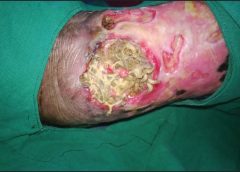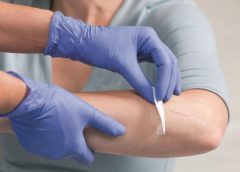Aspirin inhibits wound healing
A study in the Journal of Experimental Medicine describes how aspirin inhibits wound healing and paves the way for the development of new drugs to promote healing.
The authors of “12-hydroxyheptadecatrienoic (12-HHT) acid promotes epidermal wound healing by accelerating keratinocyte migration via the BLT2 receptor” report that aspirin reduced 12-HHT production, which resulted in delayed wound closure in mice. However, a synthetic leukotriene B4 receptor 2 (BLT2) agonist increased the speed of wound closure in cultured cells and in diabetic mice. (more…)
Read More

